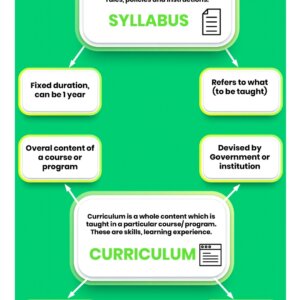Mathematics is not just about finding the right answers; it’s also about developing critical thinking and problem-solving skills. One effective way to foster growth in math is through constructive critiquing. This article explores the importance of critiquing in math education and provides insights on how to effectively implement it.
1. Creating a Safe Learning Environment:
To encourage critiquing in math, it’s crucial to establish a safe and supportive learning environment. Students should feel comfortable expressing their ideas and opinions without fear of judgment. Emphasize that critiquing is about improving understanding, not about personal attacks.
2. Encouraging Multiple Perspectives:
In math, there can be multiple approaches to solving a problem. Encourage students to share their unique perspectives and solutions. By valuing different approaches, students learn to appreciate diverse strategies and expand their problem-solving skills.
3. Active Listening and Respectful Feedback:
When critiquing, active listening is key. Encourage students to listen attentively to their peers’ ideas and explanations. Provide guidelines for offering respectful feedback, focusing on the strengths of the solution and suggesting areas for improvement. This helps foster a culture of collaboration and mutual respect.
4. Promoting Evidence-Based Reasoning:
Critiquing in math involves providing evidence-based reasoning to support or challenge a solution. Teach students to analyze and evaluate mathematical arguments, encouraging them to ask questions and seek clarification. This helps develop their analytical and logical thinking abilities.
5. Peer-to-Peer Critiquing:
Peer-to-peer critiquing is a valuable practice that allows students to learn from one another. Assign students to work in pairs or small groups, where they can exchange ideas, discuss different approaches, and provide feedback to each other. This promotes active engagement and deepens understanding.
6. Teacher Guidance and Facilitation:
Teachers play a crucial role in promoting effective critiquing. Provide clear guidelines and expectations for critiquing sessions. Model constructive feedback by asking probing questions, encouraging reflection, and highlighting the strengths of different solutions. Offer guidance to help students refine their critiquing skills.
Conclusion:
Critiquing in math is a powerful tool for enhancing learning, problem-solving skills, and critical thinking abilities. By creating a safe learning environment, encouraging multiple perspectives, promoting active listening, and providing constructive feedback, we can empower students to become confident mathematic



